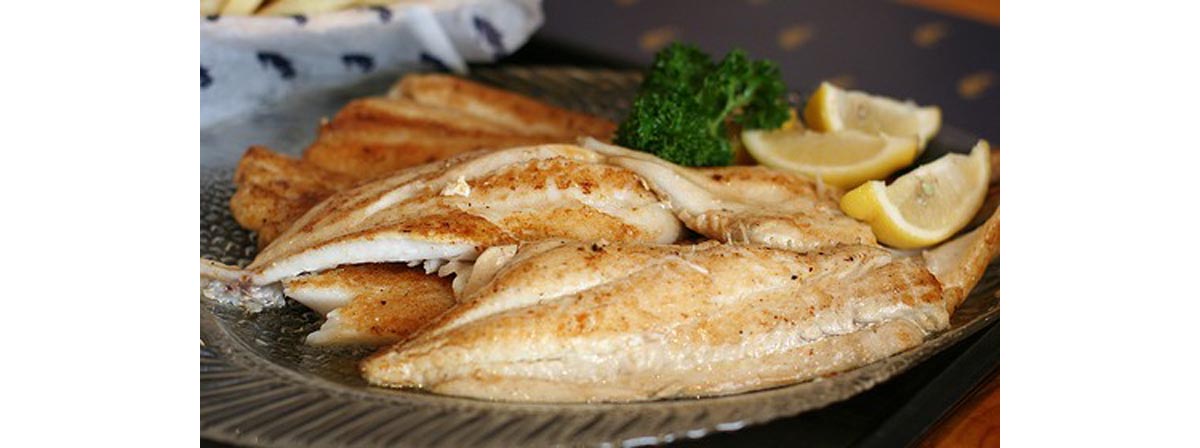Table of Contents
So what types of fish should you be eating to build muscle fast?
The best answer is: All of them.

As with any nutrition topic, variety is key – you don’t want to limit yourself and should aim for as much variation as possible to ensure all the possible health and body composition benefits. That being said, certain fish should definitely be on your menu if you want to maximize your muscle gains (and even if you don't).
Tuna
I came down a little hard on tuna earlier, but that was purely for the fact that it seems to be nearly every bodybuilder’s common go to fishy protein source.
Tuna is high in protein, with an average sized can containing around 35 to 40 grams of protein, but it is a bit boring.
The main benefits of tuna, however, are its price and its convenience. Tuna is one of the cheaper fish gram for gram, plus it’s very easy to neck a can in a few seconds flat without giving it a second thought. Many bodybuilders have been known to experiment with the famous tuna shake too – a can of tuna blended with diet coke. Maybe not the tastiest of concoctions, but you can’t argue with the fact that it’s a quick protein fix.
Due to the canning process, tinned tuna doesn’t have any omega 3s, so opt for fresh tuna steaks from time to time. You don’t want to overdo the canned stuff either, as it has high levels of mercury. A few cans per week won’t hurt you, but avoid eating it every day.
Salmon
A little predictable maybe, but salmon is a solid choice and a healthy fish.
Protein-wise it’s not quite as good as tuna, but it beats it hands down in terms of essential fats and taste. One good sized salmon fillet will give you your daily intake of omega 3s, plus it makes a much tastier dish.
Look for wild salmon if you can, as farmed salmon is often intensively reared and lacks the omega 3s. Unlike canned tuna, canned salmon does contain these essential fats, though not in quite as high a quantity as fresh salmon.
Mackerel
Mackerel is another oily fish very similar in nutritional properties to salmon. The main bonus of mackerel though is that the healthy fat values are almost identical whether it’s canned or fresh. It’s cheap too, and makes a great addition to salads.
Pilchards
If you looked at the nutritional information on the back of a tin of pilchards and compared it to mackerel, you’d hardly know the difference. Due to the fact they’re not as widely used however, pilchards are pretty much the cheapest fish you can buy.
Tilapia
Tilapia is a non-oily fish, so like tuna, this fish is higher in protein and lower in fat, which makes it perfect for when you’re looking for a lower fat meal, or want to add fats into your meal in other forms, such as avocados, cheese, or wish to cook your fish in oil or butter without overshooting your fat intake.
Seafood
Prawns, shrimp, lobster, mussels and the like aren’t as high in protein, containing around 15 to 20 grams of protein per 100 grams of product compared to 20 to 30 grams in the other fish, but they do offer an excellent alternative to regular fish. Add them to risottos, paellas, salads or pasta dishes, and enjoy the dietary variety.
The Wrap Up: Eating Fish to Stay Healthy and Build Muscle
Any fish is a muscle building fish if you get your diet right as a whole. The conventional bodybuilder's truth really is true. To get big, you have to eat big, and you do that by consuming more calories than you burn. When it comes to fish, forget your tuna salads or low-fat cod and broccoli meals and choose to eat big servings of salmon with mountains of sweet potato, mussels and squid in creamy sauce, or cans of mackerel in tomato sauce piled high on a stack of whole-grain toast.
- Why Fish Oils Are The Most Important Supplement
- By Charles Poliquin
- Published on October 28, 2010
- Accessed on May 20th, 2013
- Retrieved from http://www.charlespoliquin.com/Blog/tabid/130/EntryId/118/Why-Fish-Oils-Are-The-Most-Important-Supplement.aspx
- Photo courtesy of Wei-Hang Chua by Flickr : www.flickr.com/photos/morepork/6808635984/
- Photo courtesy of Colin Charles by Flickr : www.flickr.com/photos/byte/116557283/


Your thoughts on this